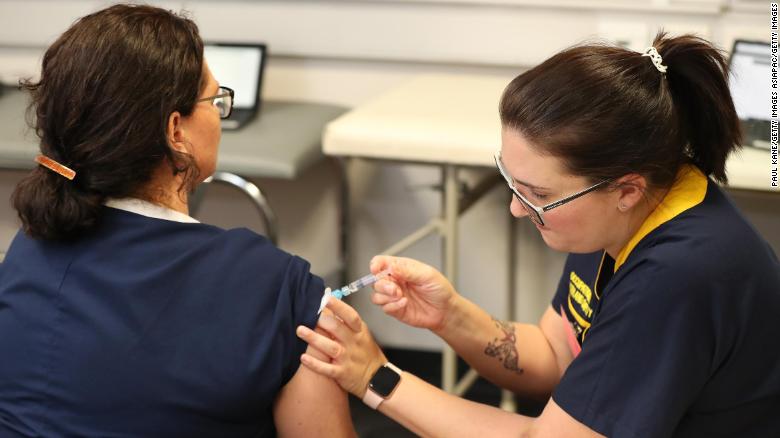Study: immunity against covid-19 decreases in 3 months 0:44
(CNN) -
Immunity to COVID-19 infection lasts at least five months, and probably longer, researchers reported.
While the report may seem confusing and contradictory to a similar report released in Britain this week, it actually is not.
British study shows evidence of decreased immunity to covid-19
People's bodies produce an army of immune compounds in response to infection, and some are overwhelming at first and die quickly, while others accumulate more slowly.
The new report released Wednesday shows that 90% of people recovering from COVID-19 infections maintain a stable antibody response.
“While there have been some reports that say antibodies to this virus disappear quickly, we have found the opposite: that more than 90% of people who were mildly or moderately ill produce an antibody response strong enough to neutralize the virus, and the response is sustained for many months, "said Florian Krammer, a professor of vaccinology at the Icahn School of Medicine at Mount Sinai, who led the study team.
"This is essential for the development of an effective vaccine."
advertising
This was the study on immunity
The team analyzed the antibody responses of more than 30,000 people who tested positive for COVID-19 at Mount Sinai Health System between March and October.
They characterized their antibody responses as low, moderate, or high.
More than 90% had moderate to high levels, or titers, of antibodies against the virus's spike protein, the structure it uses to grasp the cells it infects.
They then closely studied 121 patients who recovered and donated their plasma, once three months after they first developed symptoms, and again five months later.
They saw a decrease in some antibodies.
But others persisted, they reported in the journal Science.
"The serum antibody concentration that we initially measured in individuals was likely produced by plasmablasts, cells that act as first responders to an invading virus and join together to produce initial episodes of antibodies whose strength soon wanes," said Dr. Ania Wajnberg, Director. of clinical antibody testing at Mount Sinai Hospital.
'The sustained levels of antibodies that we see later are probably produced by long-lived plasma cells in the bone marrow.
“This is similar to what we see in other viruses and it probably means that they are here to stay.
"We will continue to follow this group over time to see if these levels remain stable as we suspect and hope they will."
Antibodies are not the only protection the immune system offers against infection, but they are an important first line of defense.
"Although this cannot provide conclusive evidence that these antibody responses protect against re-infection, we believe that it is highly likely that they lower the odds ratio for re-infection," the team wrote.
Scientists keep learning about coronavirus
Covid-19 has only been around for just under a year, so scientists are still learning about it.
The stories of people who were infected more than once are mostly anecdotal and few, as well as distant from each other.
There is an obvious concern about this.
It would help more to get rid of the pandemic if people developed permanent immunity to the virus after an infection.
And, of course, immunity would be vital for a vaccine to work well.
It happens with other viruses.
Measles is one example.
A measles attack usually leaves someone immune for life, an effect known as sterilizing immunity.
The same happened with smallpox, before the virus was eradicated in the 1970s through a worldwide vaccination campaign.
And proper vaccination against measles and smallpox fully protects against infection.
But respiratory viruses like influenza are more complicated.
People can get the flu over and over again, and flu vaccines generally provide only partial protection against serious infections and illnesses.
Part of that is due to the flu's tendency to mutate.
The characteristics of the coronavirus
Coronaviruses seem to be in the middle.
They can cause the common cold, but because they are rarely fatal, they are not as well studied.
Until Covid-19's deadly cousin SARS appeared, there was little interest in coronaviruses.
Still, there is evidence that people can and do develop some immunity to coronaviruses.
"We know from work with common human coronaviruses that neutralizing antibodies are induced, and these antibodies can last for years and provide protection against reinfection or attenuate disease, even if individuals are reinfected," Wajnberg and colleagues wrote.
"It is not yet clear whether and for how long infection with SARS-CoV-2 in humans protects against re-infection."
The next important step, they said, will be to establish what are known as protection correlates.
These are compounds that can be measured in the blood and that will tell doctors if someone is immune, so there will be no need to wait and see if they become infected again after an episode or after receiving a vaccine.
Immunity












